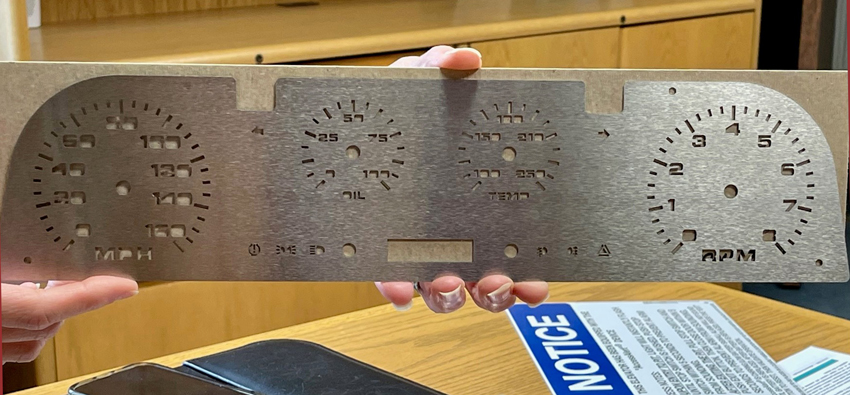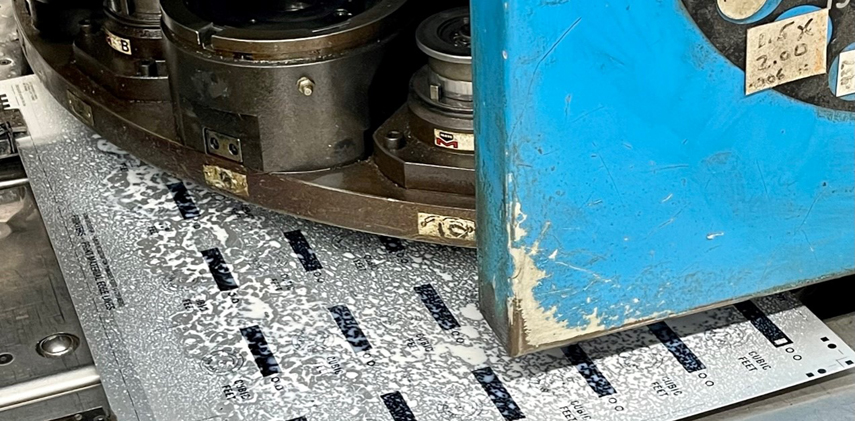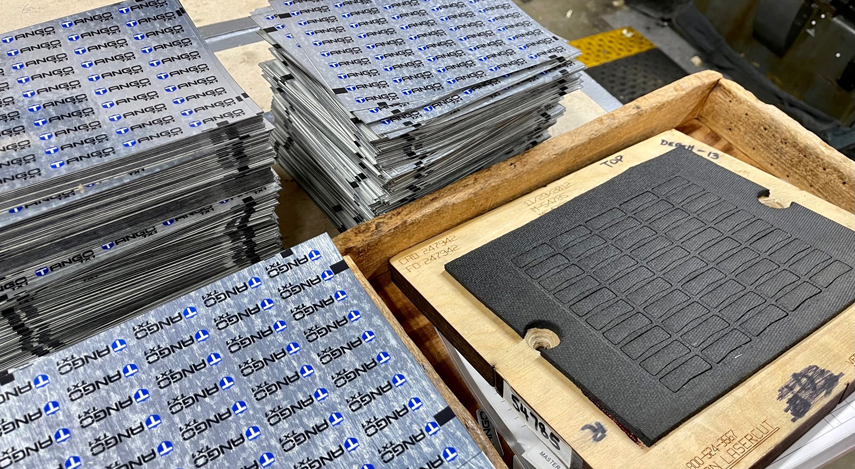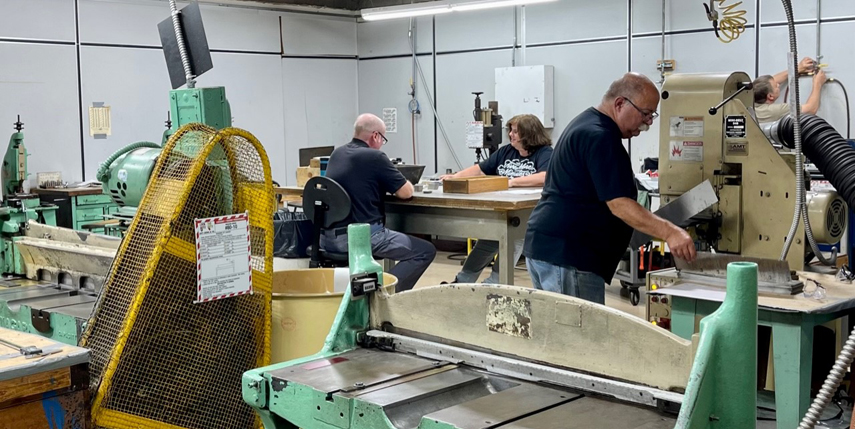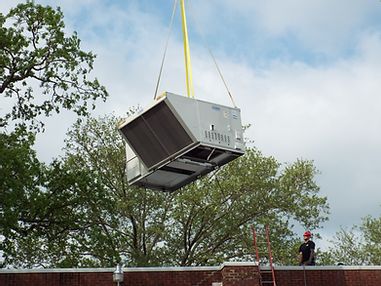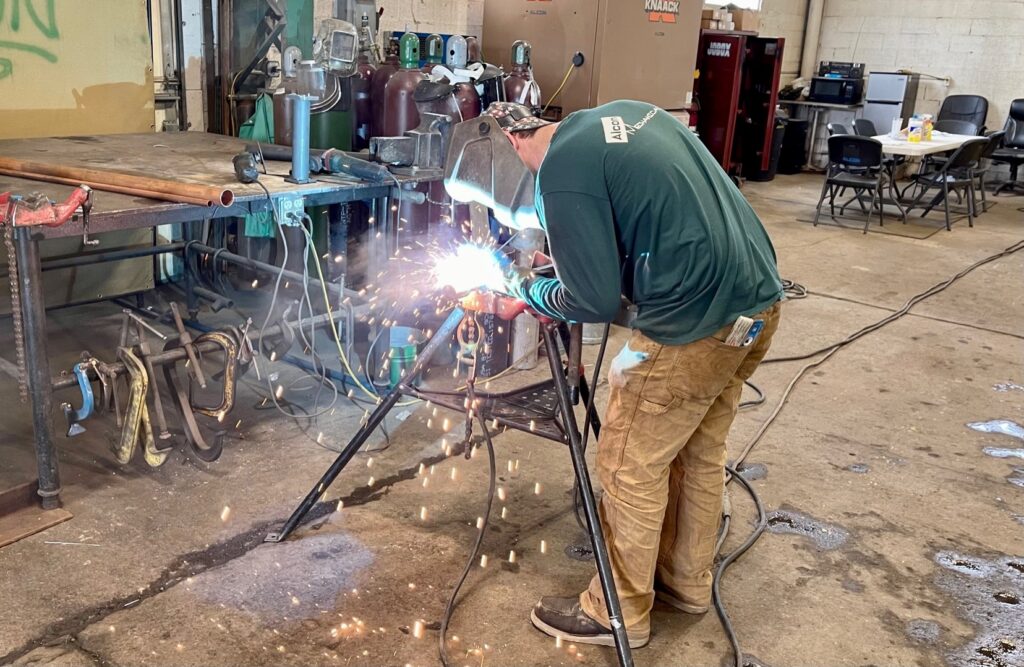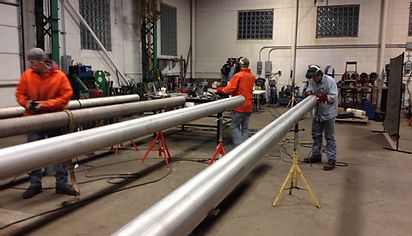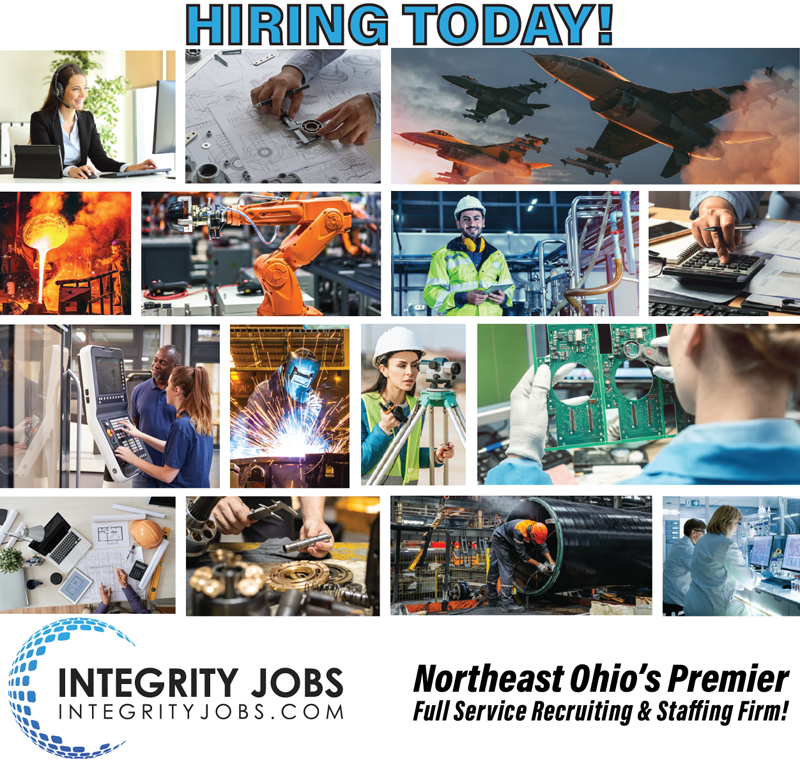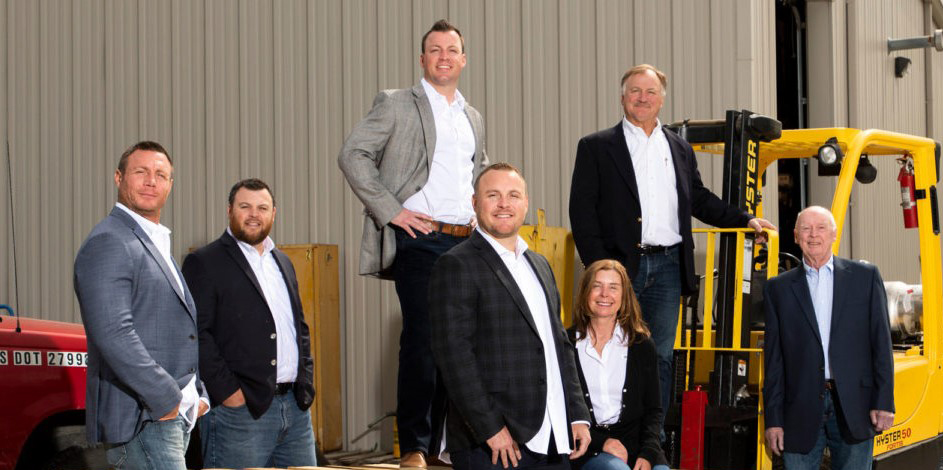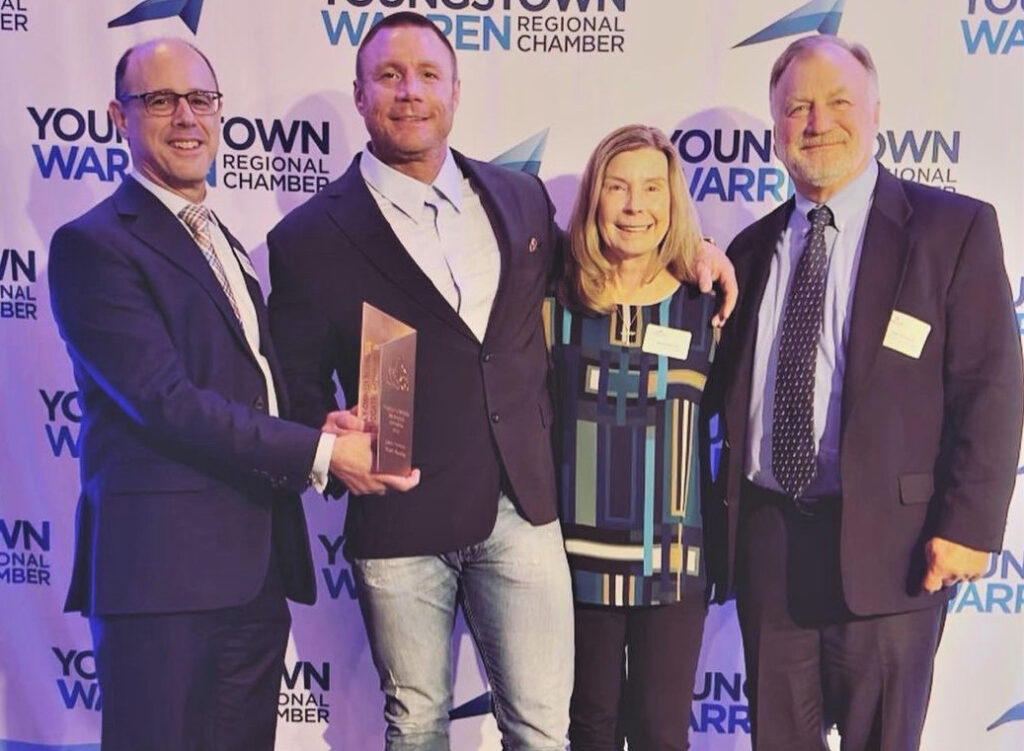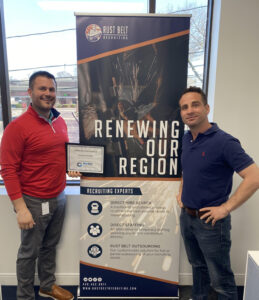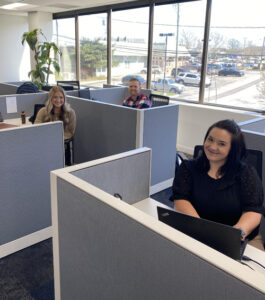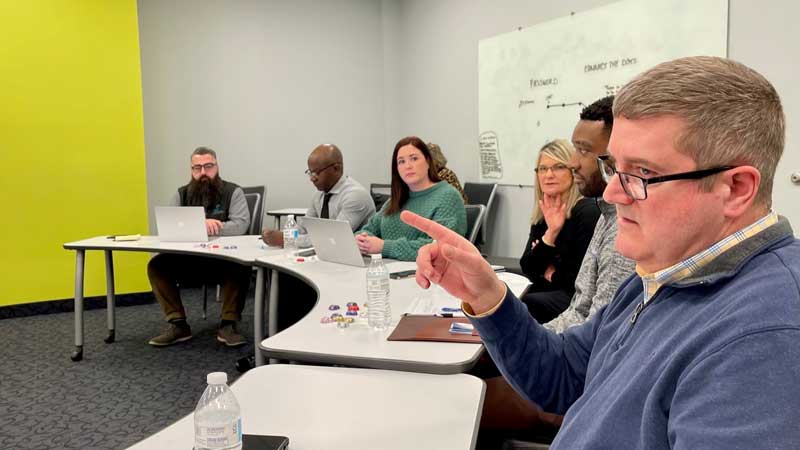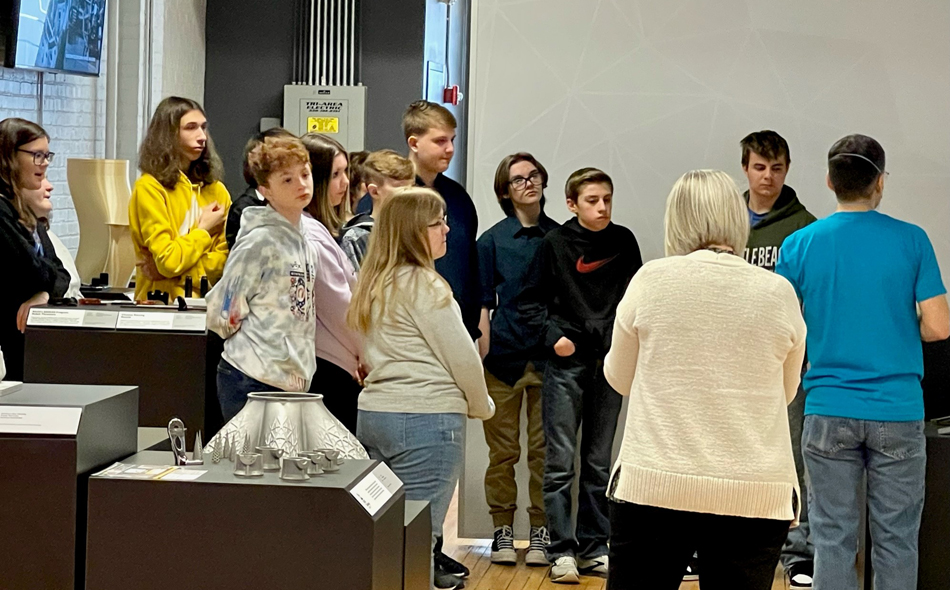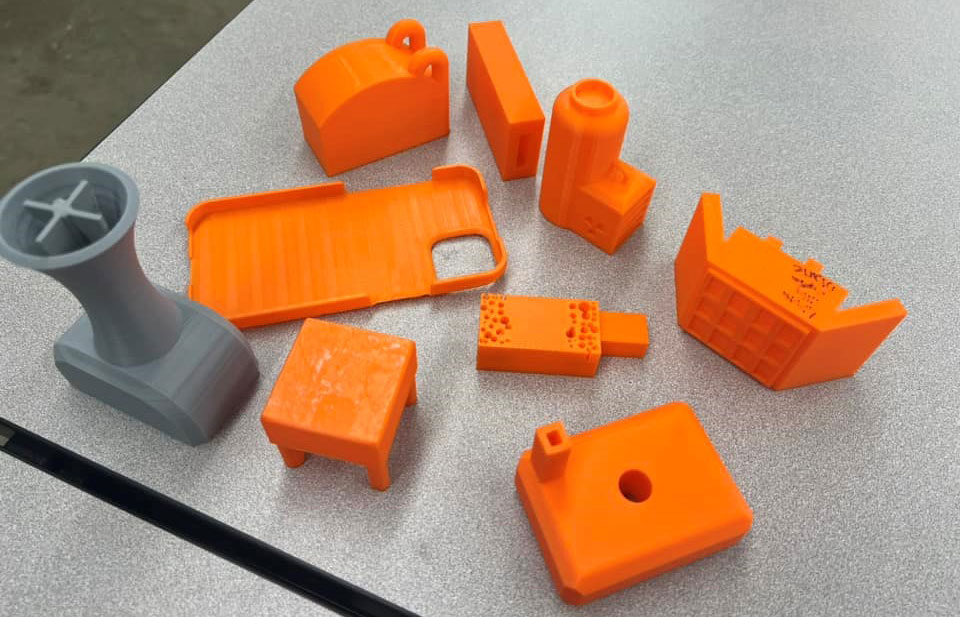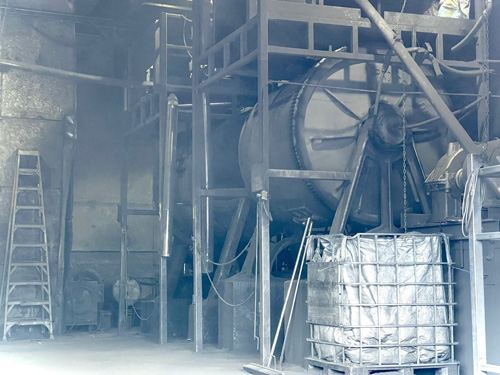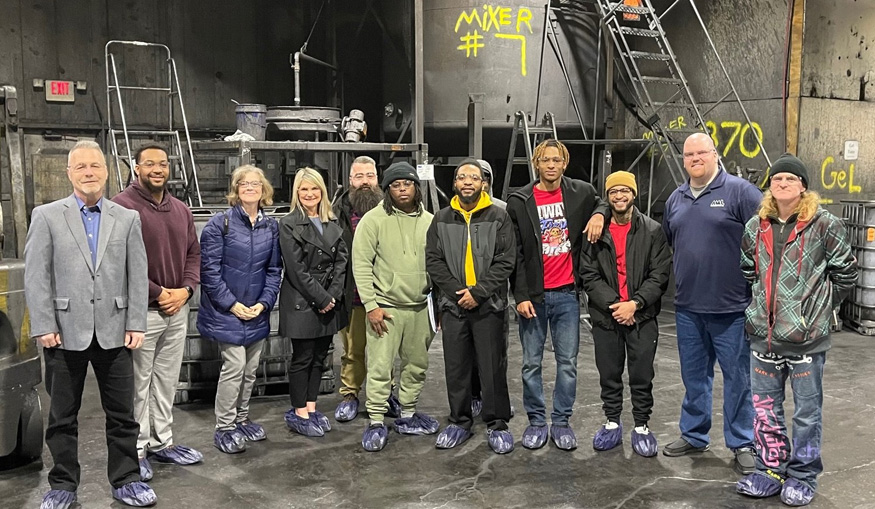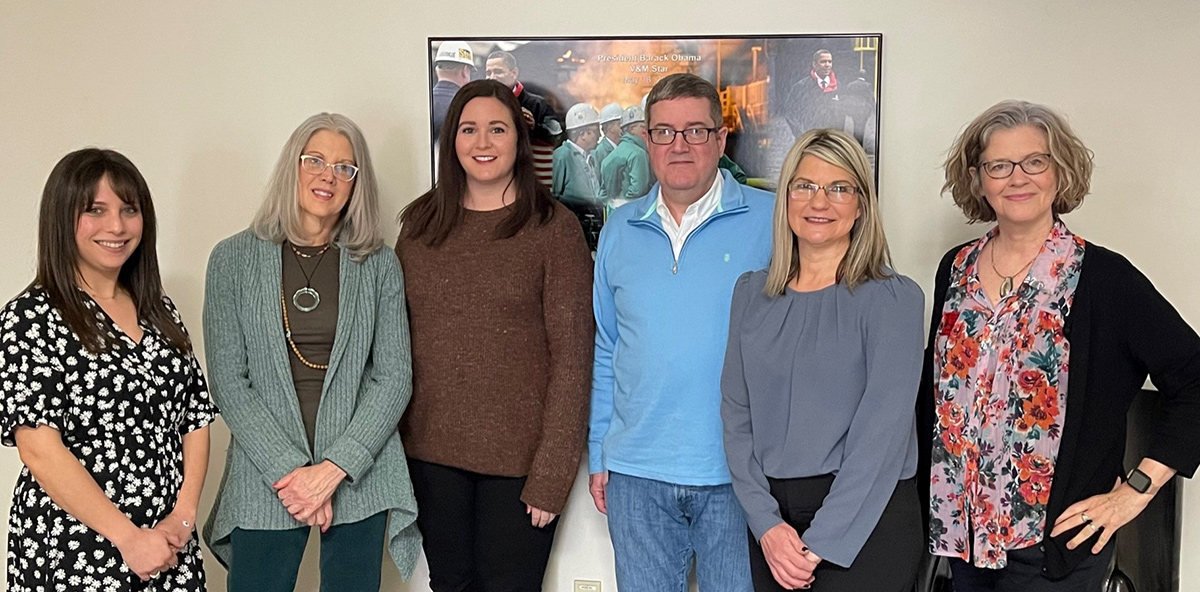A difficult life lesson is transformed into hard work, consistency and a sense of purpose for a Warren mother. Ashley Zins has never held what she calls “typical jobs”. She describes herself as artistic, creative and has worked in manufacturing settings before – including a granite company.
However, she hit a bump that slowed her career journey for a while. Zins was justice impacted for OVI offenses, and part of her two-year sentence was to complete a program at the Community Corrections Association (CCA).
“When I was in jail, I was where I needed to be. I was on a bad path. I felt like God sat me down in there to learn from this,” Zins said.
A pivotal moment
She’s the mother to a teenager and a 21-year-old, and she often worried how being away would affect them.
After a couple of months at CCA, she saw a WorkAdvance flyer. That was a turning point for her life.
“The job coordinator pointed me to it, and I was interested. I ended up filling out an application and got accepted in November of 2022,” Zins said.
Then, in December, she became part of the WorkAdvance cohort with more than a dozen others. Participants go through classes and career readiness as part of the experience through the National Center for Urban Solutions and Eastern Gateway Community College.
“I have always enjoyed manufacturing because you get to make things. I’ll even do little projects in my spare time. My dad always said not to rely on a man to take care of me, and my mom was the same way,” Zins said.
The first steps
Meanwhile, she requested an early release from CCA, and one of the requirements was to be employed. Her first choice was ClarkDietrich in Vienna, a WorkAdvance partner, but that posed a transportation challenge with her suspended license and the plant not being on the bus line.
CCA denied her early release, but to go home, she still needed a temporary job to pay off a fine. That’s when the NCUS and MVMC stepped in to help get her a job at a dry cleaner.
On March 18, Zins left CCA after completing the requirements. She credits the WorkAdvance opportunity for a second chance at life.
“I’m just so thankful for everyone. The career coaches still check up on me. The interview classes really helped me with communication. It gave me confidence, and all the support has boosted that. Now, I get to help others in similar situations,” Zins added.
Breaking free
She quit the dry cleaner a couple months ago and was hired at ClarkDietrich. She works on the pack line and plans to be there as long as possible.
“I’m hitting all my marks, so far, and bonus money has been a blessing. I have to be there a while longer for apprenticeship consideration, but I plan to do that and work my way up at the company,” Zins said.
She’s relieved to have a steady income and not be as stressed about money and paying bills. Zins has also been sober for three years, sponsors people in recovery, does talks in meetings and regularly attends them for herself.
“I really believe in karma and putting out the good. You just have to keep giving back. It’s not hard. You have to do the work and keep showing up,” Zins said.
It’s been a somber reality check when she reflects on everything that happened.
“I could’ve killed someone, and then, seeing how everything affected my kids. I’m thankfully working on repairing relationships with them now,” Zins said.
“I know what I didn’t want. I didn’t want to die, and I didn’t want to lose my family,” she added.
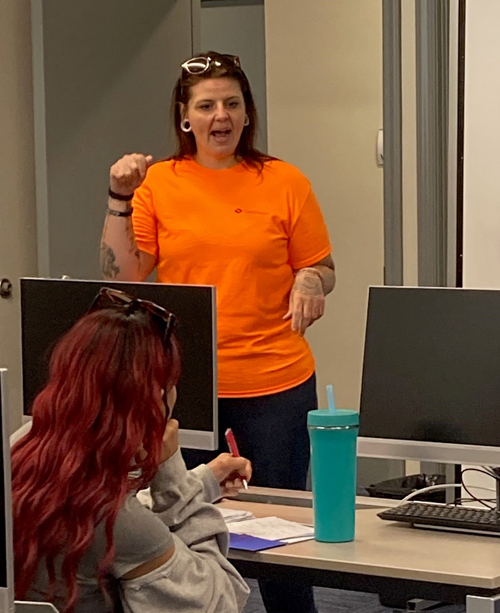
Building a future
Now that she’s made monumental changes, the future includes helping others do the same. Zins will continue working with people in recovery and wants to eventually become a chemical dependency counselor. She’s currently taking classes through Kent State University.
One of her long-term goals is to build a better community. Most recently, she spoke to participants in the All-Women WorkAdvance cohort about her story and experience. Those who have helped her up to this point are happy to see her succeeding.
“I was impressed, right away, with Ashley’s desire to have a good job and be active in her community, and I’m glad she’s doing so well,” said Kelly Bancroft, project manager for the Mahoning Valley Manufacturers Coalition.

